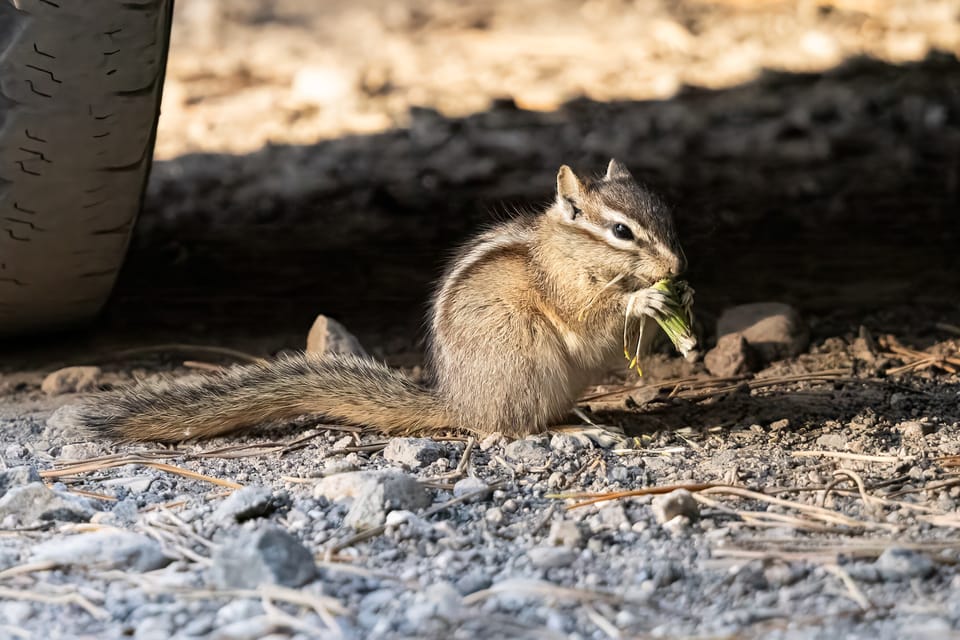EcoWest News, August 5, 2025

Welcome to EcoWest News, a weekly round-up of news and resources that you can put to use in addressing environmental issues and protecting the wild in your community.
Across the West
The provincial government is inviting Manitobans to provide input on the province’s roadmap to achieve net-zero emissions by 2050. Consultations are being held and there is an online survey. [Engage Manitoba]
A group of women from Cumberland House Cree Nation will be travelling throughout Saskatchewan to raise awareness of the harmful effects of dams on the Saskatchewan River delta. [CBC]
Citizens for Public Justice, the Saskatchewan Environmental Society, and 3 Saskatchewan and Manitoba residents have filed a court case to stop the Saskatchewan government from maintaining the province's three coal-fired power plants past 2030. [CBC]
“An Alberta municipality that declared an agricultural disaster earlier this month due to drought is moving forward with plans to host the ‘largest AI computer data centre on Earth,’ which could drain millions of litres of water every day from the watershed”. [The Energy Mix]
A team of West Coast researchers has identified a particular strain of ocean bacteria that has killed more than 6 billion sea stars since 2013. [Inside Climate News]
Environmental groups and First Nations worry that a ski resort in BC’s West Kootenays won’t receive an adequate environmental review and could endanger the habitat of grizzlies, wolverines, and other wildlife. [The Narwhal]
Across Canada
CPAWS has updated its report card on progress to protect land and ocean with a report on recent regional changes. [CPAWS]
The federal government provides natural resources sectors with over $13.2 billion of subsidies every year, 86% of which “unintentionally push more resource extraction, habitat loss, or pollution than would happen otherwise”. Reform can “start with short-term opportunities to tackle high-impact, low-risk areas, for example, tax breaks that drive unnecessary overinvestment, or incentives that keep older, less efficient production going longer than it should.” [Environment Economics]
Around the World
Mycorrhizal fungi are critical to plant health and carbon storage. By using AI to map the underground fungal networks, scientists hope to encourage protection of fungal biodiversity hotspots. [Anthropocene]
Plastic production increased by more than 200 times since 1950, posing a health risk at every stage from extraction to disposal. It’s particularly harmful for foetuses, infants, and young children. [The Guardian]
Air pollution from trucks and vehicles has been linked to dementia. [Yale Environment 360]
Making a Difference
Montreal’s Darlington Ecological Corridor is an interconnected patchwork of parks, gardens, and curbside flowers spanning 7 km in the city’s Côte-des-Neiges neighbourhood. [Canadian Geographic]
Companies in Texas are repurposing used EV batteries to store excess renewable energy to stabilize the electricity grid. [Inside Climate News]
For Our Kids Burnaby: “By teaching kids from a mindset that prioritizes stewardship and solutions, enriching their community, and genuinely having fun, they’re creating a safe place for kids to understand the current crisis they are stepping into, while still getting to be kids.” [West Coast Climate Action]
Over 40% of the communities in 3 regions of France are turning their streetlights out at night. Larger communities are favouring partial extinction. [Cerema, in French]
Nature’s Wonders
A yeast-like fungal symbiont provides essential nutrients that the lac insect’s diet lacks and produces a red-coloured pigment used for dyeing textiles and handicrafts. [The Scientist]
Abundant wildlife communities living 31,000 feet under the ocean’s surface depend on bacteria within their organisms to turn chemical compounds into food. [Mother Jones]
“It’s not just about pollinators. Beneath the soil and among the leaves, a hidden army of beneficial insects is hard at work.” [UManitoba]
Photo credit: https://www.flickr.com/photos/apmckinlay/54635869848
EcoFriendly West informs and encourages initiatives that support Western Canada’s natural environment through its online publication and the Nature Companion website/app. Like us on Facebook, follow us on BlueSky, X, and Mastodon, or subscribe by email.

Member discussion